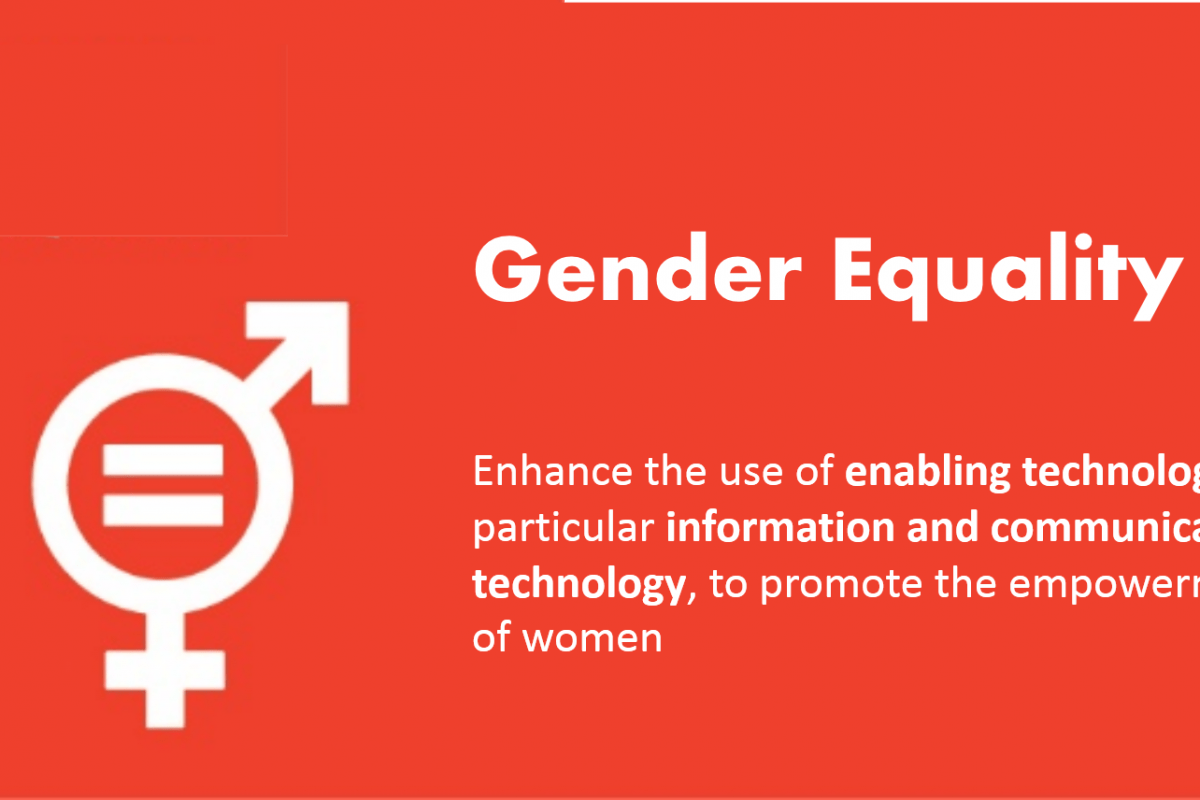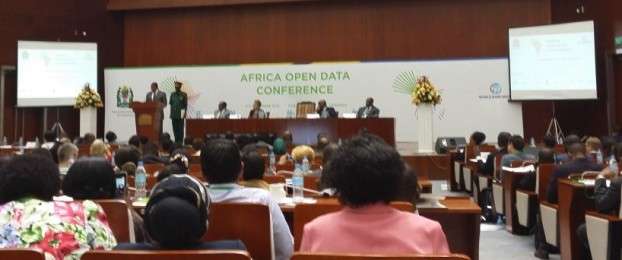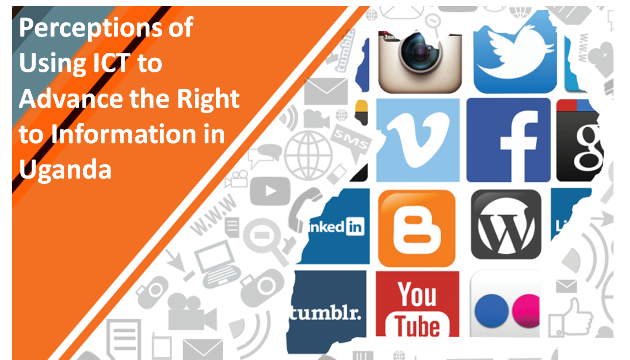Storify |
This International Women’s Month, we reflect on what presently shapes women’s participation in the online arena. On International Women’s Day, 8 March, we hosted Akina Mama Wa Afrika, Women of Uganda Network (WOUGNET), Connecting Voices of Citizens (CVC) and the Ask Your Government (Uganda) online portal in an online Twitter chat during which we asked “What must change?” to enable a more inclusive online community which recognises gender equity.
See some highlights from the chat here
Advancing Open Data Implementation in Africa
By Ashnah Kalemera |
The push for open data that contributes to government transparency and accountability in service delivery and promotes citizens’ right to information and innovation in the Information and Communication Technology (ICT) sector continues to gain prominence globally. Indeed, open data has been recognised as a key pillar of sustainable development. However, implementation of open data by African governments, civil society and the private sector is mostly in its infant stages, with some countries recording more success than others.
The demand and supply of open data in Africa is faced with numerous challenges including lack of complete data, authoritarian regimes, multiple fragmented actors, limited technical skills and capacity, inadequate infrastructure and low literacy rates.
On September 4-5, 2015, the government of Tanzania and the World Bank hosted the first Open Data Conference in Africa, that brought together the emerging open data community in Africa to showcase innovations and discuss opportunities and challenges to open data implementation.
Country representatives from Kenya, Tanzania, Burkina Faso, Rwanda, Ghana, Sierra Leone, Liberia, and Ethiopia, among others shared experiences of national open data initiatives aimed at improved governance and better service delivery in the key sectors of education, water, health and transport. They highlighted the policy, financing, supply, demand, technology, and institutions driving these initiatives.
From civil society and the private sector, the innovations and practical applications showcased included Open Street Map Data in Dar es Salaam, Open Schools Kenya, open data for agriculture and nutrition, complex data visualized in Nigeria, open data for citizen engagement, energy and extractives among others.
Bella Bird, World Bank Country Director for Tanzania, told the conference that data is no longer for statisticians but governments that want to measure progress and democratic achievements. According to Ms. Bird, open data was “nowhere more relevant” than in Africa which is experiencing the fastest changes in population, urbanisation, and economic development compared to other continents.
She said that advancing open data in Africa was not just about making data accessible but making good data available and user friendly. “Without [data] evidence, planning and strategy is difficult and less likely to succeed,” she said.
The World Bank has supported over 30 countries around the world (including some in Africa) in the evaluation, design and implementation of open data initiatives. But few African countries are leveraging the potential of open data compared to their global counterparts.
In 2011, the Open Government Partnership (OGP) was launched as a multilateral initiative “to secure concrete commitments from governments to promote transparency, empower citizens, fight corruption, and harness new technologies to strengthen governance”. To-date, only eight of the continent’s 54 countries have joined the partnership that works to increase government openness in budget transparency, access to information, asset disclosure by politicians and officials, and citizen engagement. The OGP has 58 other member states across the world.
Meanwhile, in 2014, the Global Open Data Index which measures and benchmarks the openness of data in 97 countries around the world ranked South Africa highest among 19 African countries surveyed, at position 36. Burkina Faso followed in 59th position and Senegal in 63rd. Among the lowest ranked countries were Guinea (97), Mali (96) and Sierra Leone (94).

Figure 1: African Countries 2014 Open Data Index ranking (Source: Global Open Data Index)
However, as noted by Frannie Leautier, a managing partner with the Fezembat Group in France argued that it did not matter where African countries are ranked in the index or the partnerships they belong to. Focus should be on what stakeholders in each country can do with open data to improve livelihoods.
South Africa’s Statistician General, Pali Lehohla, noted that in translating open data into valuable outcomes in Africa, the issue of intellectual property should not be ignored. He said intellectual property particularly around algorithms used in data analysis must also be open for the full potential of open data to be realised in Africa.
Meanwhile, the World Wide Web Foundation’s Nnenna Nwakanma suggested that open data use on the continent should not only be about the accountability of governments but also about giving citizens the opportunity to plan, invest, and gain financially to better their lives.
“The problem in Africa is not money itself but how best to invest money. If we have the right information and data, the one billion citizens will start investing accordingly,” she said.
Participants at the conference which was held in Dar es Salaam widely recognised the key role of national statistics agencies in actualising the potential and impact of data. They also recognised the need to set up the right infrastructure and skills building to fill the existing gaps. Civil registration for birth, deaths, and marriages was recommended to ensure vital statistics are not always based on estimates. Other recommendations included advancing partnerships between the various actors to share experiences and avoid reinventing the wheel.
To read more about the conference proceedings, see #africaopendata.
Data Revolution – The Reality for African Countries
By Aroob Syedah Iqbal |
IBM, the American multinational technology and consulting firm, reports that 2.5 quintillion (10^18) bytes of data are being generated everyday through search engines, social media check-ins, internet purchases and much more. The data being generated is at such an unprecedented rate that an estimated 90% of the data in the world today was created in the last two years alone.
While the digitised developed world is enthralled by the enormous amounts of data generated and the opportunities opened up by this data, developing countries are still grappling with a lack of complete data for development efforts. This lack of data in developing countries and the possibilities for data collection opened by digitisation has called for a ‘Data Revolution’ to be put at the forefront of the new global development agenda.
The need for a data revolution is at the heart of the international community’s conceptualization of the United Nations (UN)-led Post 2015 Sustainable Development Goals (SDGs). Together with a global framework of indicators for monitoring progress towards the SGDs, emphasis is placed on establishing mechanisms that facilitate collection of local dis-aggregated data annually. This high quality data is expected to facilitate implementation, accounting, and tracking of the development goals at international levels.
However, this global movement towards better data can easily fail without the committed support of national governments. Following the UN call for a Data Revolution, the African Union Council of Ministers adopted the African Data Consensus in Addis Ababa in March 2015 to ‘Africanise’ and nationalise the data revolution. The Consensus recognises and emphasises the unique contextual realities of Africa.
In Uganda, a 2014 study by Development Research and Training (DRT) into the potential impact of open data to resource allocation for poverty eradication found that though there are multiple actors within the data ecosystem, they work in silos not complementing each other’s efforts. While the overarching goal for all the actors is increasing transparency of and access to available data for improved decision-making and ultimately for poverty eradication, the established and emerging open data actors were found to be “polarized, fractured, sharing different and conflicting agendas and in some cases, not even aware of one another’s existence”.
An earlier 2011 study by the Collaboration on International ICT Policy for East and Southern Africa (CIPESA) which was based on basic tenets of open data readiness (knowledge, attitudes and practice) concluded that Uganda was ready to implement Open Government Data (OGD) with appropriate support and guidance. However, there remained the need to create systems and infrastructure to converge all government data into a single location. There was also the need for a shift in attitude towards open data use and the development of appropriate regulations and standards that conform to OGD initiatives.
Accordingly, as part of the 2015 annual Civil Society (CSO) fair in Uganda, a session was convened to discuss how Ugandan stakeholders can collectively leverage experiences and contribute to the regional and international data revolution and the SDGs debate. The session, organised by DRT and moderated by CIPESA, also sought stakeholders’ input on how to operationalise the open data revolution in Uganda. For its part, DRT is leading a pilot project in two districts – Katakwi and Kitgum – to connect all stakeholders involved in data collection and development efforts in the two districts and create an open-resource toolkit on the available data. According to DRT, this collaboration between the different stakeholders is imperative to actualise the data revolution in Uganda. Other initiatives, both by government and civil society such as Know Your Budget, Ask Your Government Uganda and Open Data Uganda, among others are supporting greater openness and information access for citizens.
But Michael Niyitegeka – an independent consultant and a panelist at CSO fair session – noted how the data community in Uganda was currently focused on the generation of data, without putting in place appropriate structures for the processing, analysis and dissemination of relevant and useful data for decision-making processes. He also emphasised the importance of digital literacy for the country to realise the data revolution.
“Even though the Africa Telecom Outlook Report, 2014 estimates that 30% of the continent’s population is expected to own smartphones by 2017, the ownership of these devices does not imply the ability for citizens to engage with social media networks or information platforms to utilise data for efforts to improve their livelihoods or holding their leaders accountable,” said Mr. Niyitegeka.
In agreement, Dr. Florence Tushabe, a Lecturer at the Uganda Technology and Management University, also a panelist of the session, noted that “to be able to fully contribute to and benefit from the data revolution, Uganda will need the technical and human expertise it currently lacks to collect and then analyse the data.” She added that there is a need also to test locally, the hypothesis that data availability directly informs citizens’ decision-making processes and improves accountability as envisaged by the data revolution theory of change.
With only 10% of Uganda’s population connected to the national electricity grid and an adult literacy level of 73%, achieving the data revolution requires investment not only in data collection, but also in the capacity to demand and analyse that data by citizens. Capacity building is also required for civil society organisations to appropriately leverage data analysis for advocacy and engagement efforts for development. For the policy makers, the analysis would inform development interventions and investments.
Aroob Syedah Iqbal is an AidData Summer Fellow currently stationed at CIPESA. She is pursuing a Masters in Global Policy Studies at the University of Texas, Austin – USA.
Access to Information in Tanzania: Laws, Policies and Practice
By Lillian Nalwoga |
Despite the absence of a Right to Information law in Tanzania, advancements in the adoption of Information and Communication technology (ICT) in the country are enabling wider information availability in the public domain.
However, several impediments still stand in the way of citizens’ enjoyment of the right to information as guaranteed by the Constitution.
According to a new report by the Collaboration on International ICT Policy in East and Southern Africa (CIPESA), provisions under various laws and regulations, some as old as 40 years, have been used to restrict access to information.
“ Every person – (a) Has a freedom of opinion and expression of his ideas; (b) Has a right to seek, receive and/or disseminate information regardless of national boundaries; (c) Has the freedom to communicate and a freedom with protection from interference from his communication; and (d) has a right to be informed at all times of various important events of life and activities of the people and also of issues of importance to the society” Article 18 of the Constitution of the United Republic of Tanzania of 1977.
There has been slow progress in drafting an access to information law, with the process stalling since 2006, when the first Freedom of Information Bill was introduced by government. The absence of this law has made it cumbersome for those seeking information from public bodies.
The country is currently undergoing a Constitutional review process, with Articles 29 and 30 of the draft Constitution containing more elaborate and explicit provisions on freedom of expression, freedom of information and media freedom.
Although the proposed Constitution has been commended by civil society as a positive step towards promoting access to information in Tanzania, other existing laws such as The Newspapers Act, 1976, The National Security Act, 1970, The Public Service Act, 2002 and The Public Leadership Code of Ethics Act, 1995, would undermine these freedoms.
The Newspaper Act in particular has been used by law enforcement agencies against independent media and journalists. The Mwanahalisi newspaper was in July 2012 banned indefinitely under Section 25 of the Act, while Mwananchi was suspended for 90 days in September 2013.
Nonetheless, the government has in recent years made various attempts to make more public sector information available and to allow citizens to file queries, opinions, and complaints and provide feedback to public bodies. Notable efforts include the Open government data portal, Tanzania Government Portal, the central government portal, e-Government portal, the publication of reports by the National Audit Office and the Tanzania Extractive Industry Transparency Initiative (TEITI).
However, the CIPESA report notes that the information provided through these efforts is not regularly updated, is often in non-reusable formats and may not necessarily meet the needs of the public in terms of language or nature of information released.
On the positive side, some results can be pointed towards these government efforts in fostering improved government openness and accountability. The move by the Controller and Auditor General (CAG) to release its financial audit reports sparked public debate online and in Parliament over the mismanagement of funds, leading to the resignation and demotion of some public leaders in December 2014.
Meanwhile, civil society advocacy efforts to advance access to information are also on the rise. Initiatives such as that launched by the Media Institute of Southern Africa (MISA) Tanzania in 2010 to assess the most transparent and most secretive government institutions in the country have led to government recognition and acknowledgment of the need for increased transparency.
In addition, the Coalition on the Right to Information (CORI) consisting of 11 member organisations is working towards campaigns and awareness workshops to influence the government to enact the Freedom to Information law.
With a teledensity of 68 phone connections per 100 inhabitants and internet usage estimated at 9.3 million users, more Tanzanians are starting to realise the opportunities ICT offers in promoting transparency and good governance.
The research report recommends the use of a combinations of ICT, such as radio, print media, bulk SMS and automated calls in addition to public notice boards and community meetings to advance access to information in Tanzania.
Other recommendations towards improving freedom of expression, media freedom and access to information include the enactment of the Access to information legislation, amending or repealing outdated laws such as The Newspapers Act of 1976, the Public Leadership Code of Ethics (Declaration of Interests, Assets and Liabilities) Regulations, and the National Security Act of 1970.
There is also the need to safeguard the rights and privacy of internet users through the enactment of cyber laws, including the adoption of a data protection and privacy law.
Further, the report recommends that all government Ministries, Departments and Agencies should make use of available ICT platforms including portals and social media to release more information into the public domain while awareness on use of ICT among citizens to access or seek public information should be promoted by all stakeholders.
Read the full CIPESA study on The Right to Information in Tanzania: Insights on the Laws, Policies and Practices
Using ICT to Promote the Right to Information: Perceptions of Ugandan Citizens and Public Officials
By Juliet Nanfuka |
Towards the end of 2014, the Collaboration on International ICT Policy for East and Southern Africa (CIPESA) conducted research into how public officials and citizens perceived the potential of Information and Communication Technology (ICT) to advance the right to information in Uganda.
The studies revealed that there is a keen interest by citizens and public officials to leverage digital tools for increased transparency, civic awareness and participation in democratic processes. However, a larger proportion of citizens was using ICT relative to the public officials to improve access to information.
One study involved the administration of a questionnaire to 62 public officers from more than 30 Ministries, Departments and Agencies (MDAs). A second study targeting citizens involved the administration of a separate questionnaire amongst 235 respondents drawn from 10 districts, mainly university students, journalists, and staff of civil society organisations.
Uganda enacted the Access to Information Act (ATIA) in 2005, becoming one of the first African countries to have such a law. The Act, however, remained unimplemented until 2011 when the enabling regulations were enacted.
Although the Access to Information Act has been in existence for the last nine years, only 18% of the public officials and 10% of citizens rated themselves as extremely knowledgeable about the law. While all public officials had some level of knowledge of the law, 9% of citizens indicated no knowledge at all of the law.
Whereas citizens indicated histories of having made information requests, only 39% of public officials indicated that they had ever received an information request made formally using the 2005 ATIA. Notably, 87% of the information requests were made informally without mention of the ATIA or completing the required request forms.
The research reveals that although ICT tools such as emails and telephone calls are being used to request for information, requested information remains in silos as it is given directly to the requester with no guarantee that it will be disseminated further.
Challenges noted by public officials for the low levels of information release included limited ICT skills, the Official Secrets Act (1964) which hampers release of information to the public, and limited resources to adequately implement the Act on a more regular basis.
Meanwhile, following the launch of the Ask Your Government (www.askyourgov.ug) initiative in August 2014, the research aimed to gauge respondents’ knowledge and use of the portal. The portal was launched by government in partnership with civil society to enable Ugandan citizens to make public information requests from MDAs.
In the research, 75% of public officials strongly agreed that the use of ICT would make it easier and simpler to respond to information requests. This was supported by 79% of the citizen respondents who believed that the use of ICT to make information requests was likely to enable public bodies become more responsive than use of manual, non-ICT means. This would alleviate the “long process” and “cumbersome bureaucracy” which citizens pointed out as key reasons for not using the law to request for information.
For journalists who participated in the research, the 21 days which the law gives public officials to respond to information requests was cited as a key challenge given the tight deadlines in media work.
See: Advancing the Right to Information Amongst Ugandan Journalists
However, both citizens and officials indicated some skepticism about the effective use of ICT to adequately support the right to information. Public officials pointed out technical challenges such as low bandwidth, outdated equipment and limited skills within the MDAs.
One official noted, “Although employed by government, many officials have no access to ICT and some lack knowledge of how to use the tools.” Safety and security concerns were raised with regard to citizens’ personal information.
Key report Findings:
- 33% of the interviewed citizens had ever made an information request using the ATIA law. However, only 28% of these requests received positive outcomes.
- SMS was ranked the ICT tool that citizens were most proficient in using, at 58%, followed by social media at 44%. However, respondents used Facebook more frequently than SMS.
- Public officials ranked their proficiency highest in using SMS (63%) and email (60%), and they used email most frequently, followed by SMS. Social media use ranked low amongst public officials.
The research recommends that civil society should engage more proactively in advocacy for the right to information amongst citizens. Meanwhile, public officials should encourage citizens to make information requests. It also recommends that public officials adopt a combination of both ICT and non-ICT based channels to ensure that information requests by citizens are attended to promptly as a means of ensuring citizens’ motivation to increase their demand for information.
Public officials recognised that improvements can be made to better put more information in the public domain. They recommended the provision of more authority to information and communication officers to disclose information; increased use by MDAs of interactive websites and social media as these are channels that their audiences are using; and a repeal of the Official Secrets Act (1964).
See the full research reports below:
Ugandan Public Officials’ Perceptions of using ICT to Advance Right to Information
Citizen’s Perceptions of Using ICT to Make Right to Information Requests in Uganda




